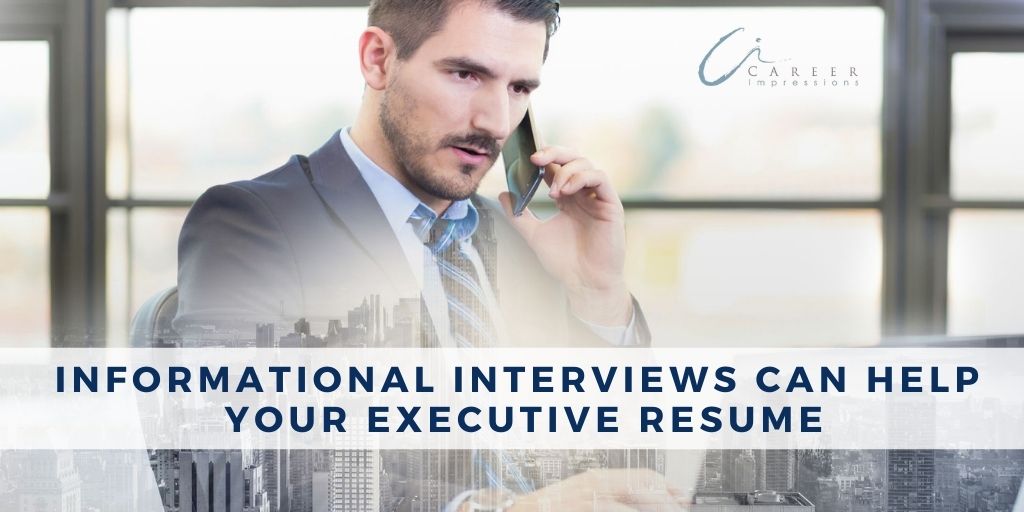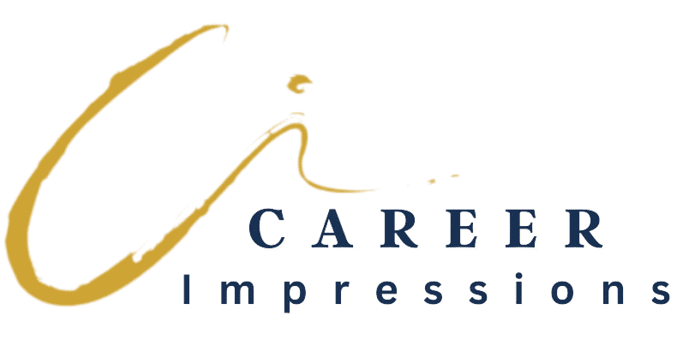
Informational Interviews Can Help Your Executive Resume
What does it mean to be ‘resume ready’? When it comes time to start seeking your next role, having an impactful and targeted resume is instrumental. However, to get that stand-out executive resume, you need to do research beforehand as part of your job search strategy. Part of this research should include informational interviews.
Investing your time to research the market, companies, and roles will give a clearer picture of what is out there and what you want to go after. Research will also ensure your executive career files (resume, bio, LinkedIn profile) are well-aligned and properly targeted.
Tapping into your network is an excellent way to start the research process. While you can – and should – look at formal labour market data, gathering anecdotal evidence through conversations with people ‘in the trenches’ will provide deeper insights into the what and why of things. These conversations – also referred to as informational interviews – can also allow you to highlight some of your accomplishments to organizations outside of a formal interview setting.
Conversations That Count
What information do you need to help you make the best decision moving forward in your executive career?
Establish what you want to learn so that you know who to contact. Going through your job search process, identify if you’re going to stay in your current industry or break into another, what types of roles you can move into, and what organizations are of interest to you. Make your conversations count by setting clear learning objectives, including market trends, company cultures, career path trajectories, business insights, and so on.
The person on the other side of the table will appreciate you coming to the conversation with a clear plan of what you are good at, and what you are looking for, to make the most of your time together.
Reaching Out
After establishing what you want to know, it’s time to identify the right people.
Your network is a great place to start, but don’t hesitate to reach out beyond its borders. Utilize LinkedIn to search people who work in industries and roles that align with your career target, as well as people who work at organizations that capture your interest. Aim to connect with other executives who are in lateral roles or above. Identify decision-makers in companies of interest.
With your list of target people made, your next move is to reach out. A simple email message, phone call, or LinkedIn InMail is suitable for those individuals you have a connection with. Keep the message succinct, make it somewhat personal (if possible) and be specific with your ask. Also, assure them that the time commitment won’t be long – be mindful of their time. An example:
“Hi, George. It has been great serving with you on the board at XYZ. I am a skilled innovator in the technology space and I’m preparing for my next career move into a CTO role with a SaaS company. I know that you have experience working in this industry as an executive for several years. Would you have 15 minutes to connect so I can ask you more about how you got started in this space? I would greatly appreciate any insights you could share with me to help with my career planning.”
For people you are not connected with, seek out a second-degree connection to see if they can provide a warm introduction. In the absence of a warm introduction, a similar message to the one above is suitable; however, add more context about yourself. Be very clear that you are only looking to have a conversation to help you learn about the market/organization/role type, and that you are not vying for an opportunity to pitch yourself.
Leading The Conversation
Lead the conversation, but don’t make the conversation all about you. Be ready to deliver your short elevator pitch at the beginning of the meeting (if the person does not know you) and then get to your questions. Prepare questions in advance based on your objectives. A little online research about the person and/or company will help you create targeted and relevant things to ask.
Allow the person on the other side of the table (or screen) the opportunity to dive into deeper details by asking them specific questions and open-ended questions. Listen to what they share and venture off-script to help create more natural conversation versus structured Q&A session. Again, be mindful of the person’s time and keep the conversation flowing.
As the meeting draws to an end, your conversation partner might ask you questions about yourself. If given, take the opportunity to highlight the trajectory of your executive career and talk about your goals moving forward.
Post-Conversation Follow Up
Be gracious of other people’s time. A thank you note goes a long way. Express sincere thanks after the meeting with a simple thank you (sent via email or handwritten and mailed) and request to keep in touch. Should you pursue an opportunity at the organization, this person could become an internal champion for you.
Finally, end every informational interview by asking for additional leads. Be so direct to ask: “who else do you recommend that I speak with about this topic/need?”. You want to keep the conversation chain going.
The content you gather through informational interviews will help you better understand your job target and learn what key points are needed to perform well in the role. These details can then help you develop a targeted and effective executive resume that showcases aligned experiences, accomplishments, and strengths.
Looking for more executive resume resources? Check out
Create Stand-Out Executive Resume Statements
Executive Resume Trends for 2021
